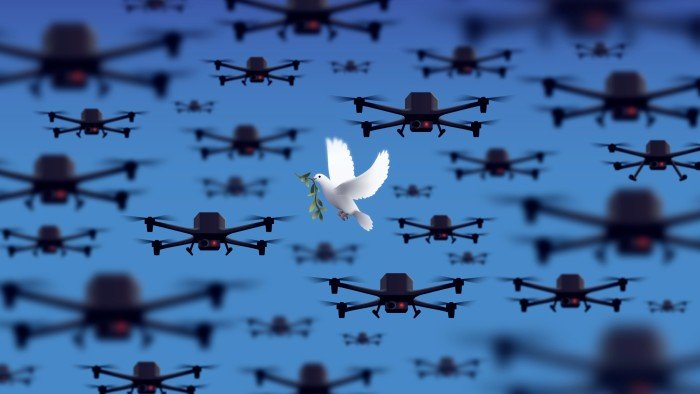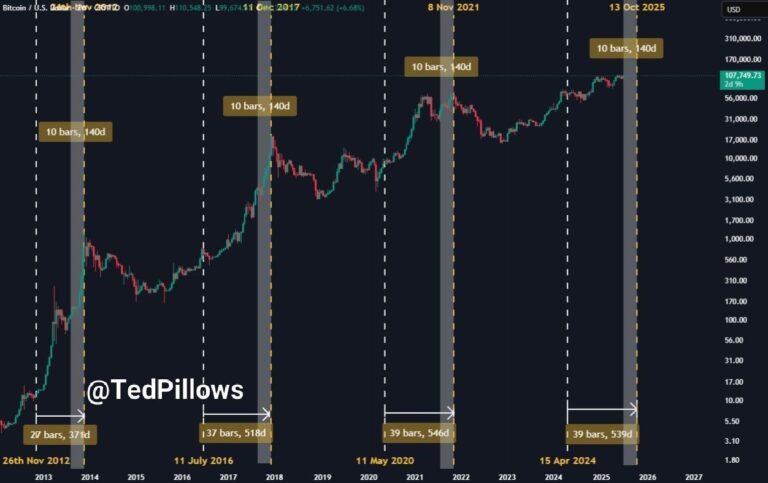
Unlock the White House Watch newsletter for free
Your guide to what Trump’s second term means for Washington, business and the world
Not long ago, we lived in one of the most peaceful eras in modern history. 2005 saw the fewest recorded deaths in armed conflict since the second world war, according to the Uppsala Conflict Data Program. How times change. Last year, there were 61 “state-based conflicts”, the most since 1946, reports the Peace Research Institute Oslo. Now add the Israel-Iran conflict. Why are there so many wars?
The only thing worse than a biased and brutal police force is no police force at all. The world experienced that shift this century. The 1990s were the heyday of the two global policemen, the US and UN. After Iraq invaded Kuwait in 1990, a UN resolution authorised member states to drive it out. That decade, the American policeman patrolled the world, seeking a near-monopoly of international violence. The “international community” (meaning the US plus friends) tolerated only civil wars in containable arenas: Somalia, Rwanda, Yugoslavia.
Peaceful norms peaked in the late 1990s, when treaties banned landmines and created the International Criminal Court. But then America’s invasion of Iraq in 2003 kneecapped both policemen: the UN, because the US acted without its consent, and, later, the US itself, after that disastrous war created a lasting domestic taboo on sending troops abroad. With China and Russia reasserting themselves, the “international community” dissolved.
The world’s lawlessness was made visible in August 2013, when Syria’s dictator Bashar al-Assad used sarin gas to kill 1,400 people in a suburb of Damascus. Barack Obama had warned that chemical attacks would be “a red line”. But he didn’t act; the American policeman had retired. Six months later, Vladimir Putin invaded Ukraine.
States became outlaws, slaughtering civilians, yet barely paid a price. Imagine if an “international community” had punished Assad or Putin, or the US for its “Global War on Terror”, or Mohammed bin Salman for the war in Yemen, or Rwanda’s Paul Kagame for becoming the Putin of Central Africa, or Israel for destroying Gaza, as they had punished Iraq in 1990. The UN Security Council has practically sat out the Indian-Pakistani, Ukrainian and Gaza wars. Steven Everts, director of the EU Institute for Security Studies, says: “The norm that you can’t use violence to solve political conflicts faded. And it’s contagious.”
America no longer even pretends to respect norms. Its bombing of Iran without the consent of Congress or the UN arguably breaches both the US constitution and international law. Donald Trump tolerates all international aggressors except Iran. The only conflict zone where he has ever put “boots on the ground” is Los Angeles.
Trump has also defunded the admittedly dysfunctional global police. He slashed headcounts in the National Security Council, State Department and intelligence agencies, and put a 22-year-old campaign staffer in charge of Homeland Security’s counterterrorism department. Washington’s vast security complex has been replaced by the real-estate developer Steve Witkoff, who first came to Trump’s notice by paying for his sandwich in a New York deli. Witkoff could not strike simultaneous peace deals in Ukraine, Gaza and Iran. Israel planned for war with Iran; the US merely sleepwalked behind it.
In this world of unpoliced normlessness, a new weapon has made war cheaper and easier. In 2018, there were still barely more than 1,000 drone killings worldwide. Today drones account for about 70 per cent of deaths in the Ukrainian war.
Impoverished Ukraine calls itself, with some justification, “the world leader in drone warfare”. It aims to produce 4.5 million drones this year. Even Yemen’s Houthi rebels can fuel global inflation by droning ships. An engineer in Myanmar “can build drones for rebels from a cave using 3D printing, parts scavenged from Chinese commercial drones, and knowledge gained from online chat rooms”, write researchers from the Carnegie Mellon Institute for Strategy and Technology.
Drones improve by the month, changing the geopolitical calculus. China, the world’s dominant producer of commercial drones, could use military ones alongside a naval blockade to subjugate Taiwan, without needing a bloody sea invasion. And the coming, almost unblockable AI-controlled drone swarms could get into terrorists’ hands too.
What can be done? Everts says that absent a global policeman, we could appoint some regional ones, for instance, a kind of European Neighbourhood Watch. It will all feel fragile. Normlessness is the historical norm in international affairs. After a brief happy aberration, it’s back.
Email Simon at simon.kuper@ft.com
Find out about our latest stories first — follow FT Weekend Magazine on X and FT Weekend on Instagram




